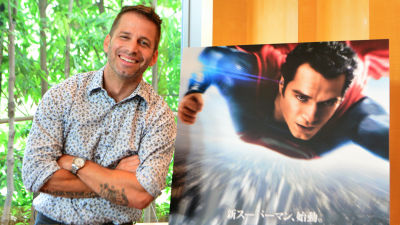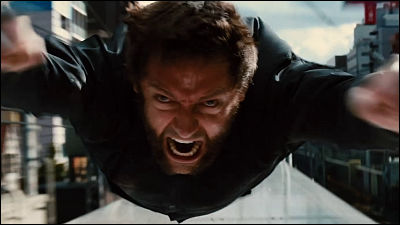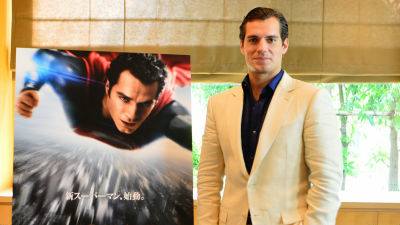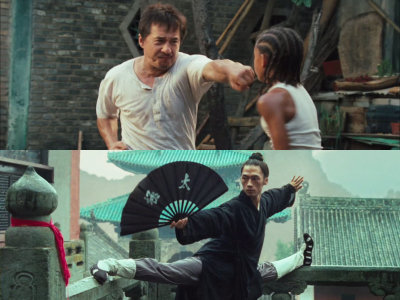I've been asking Ozu's favorite Mangold director about his passion for 'Wolverine: SAMURAI'

It is a hero of Marvel ComicsWolverineThe latest movie "Wolverine: SAMURAI" with the main character as the protagonist will be released on Friday, September 13. The director of this work was a spy action movie that Tom Cruise and Cameron Diaz co-starred "Knight & Day"And Angelina Jolie received the Academy Supporting Actress Award and the Golden Globe Award Supporting Actress Award"A 17-year old medical record"And so onJames Mangolddirected by. Since I got an opportunity to interview Mangold director this time, I've heard stories about the points of the work, the commitment in production and the trend toward Japanese movies.
Movie "Wolverine: SAMURAI" Official Site
http://www.foxmovies.jp/wolverine-samurai/
Director James Mangold who could interview this time.

GIGAZINE (hereinafter, G):
The movie that Mangold directed so far is a genre such as love romance, suspense, Western play, etc. The action hero work like this "Wolverine: SAMURAI" is a genre that has never existed I feel it will be. Why is it due to be involved in this work?
Director of James Mangold (Director):
For you, I think that I feel a difference with my previous works, but I think that I am on the contrary, a work on an extension of the common points so far. What I wanted to take with this work is that which leads to "Western play" or "Samurai movie", this time it happened that the character itself was based on the American comic. In this production, I did not plan to film the so-called "movies with original comic" or "summer action hero epic cast". I think that movies with original comics are already worn out formats. So, I think that this work has similarities to the police things, western play, and action works up to now than to the difference with the past.
G:
I will ask you about something in common. In the work to which the director has been taken up now, the emphasis is placed on the part of "Psychological description of characters, gyudosode", which I think is also expressed in "Wolverine: SAMURAI" this time. Is there a part that was put in power in this work?
directed by:
For me, I wanted to draw the suffering of being immortal. Humans feel fear against 'death', but on the contrary it is impossible to imagine the pain of suffering when they become invulnerable. On the other hand, there is a suffering that Wolverine who is immortal must part from his loved ones. Also, there is a case that the way of parting is also killed by the opponent who becomes an enemy, and because Wolverine himself is living long, it will be preempted. This time, the original by Chris Claremont and Frank Miller changed the era of the story a little, and created the "loss of feeling" of Wolverine by setting the era after a series of X - MEN series. "Professor X", lovers 'Jean Gray' and members of 'X-MEN' all have lost Wolverine, so they are in isolation and isolation. I curse my own "invulnerability" and feel it like "heavenly punishment from God", I always feel pain and I live. I thought that starting a story from that place was very interesting. Although it is a character that is a pop icon of American comic, I think that it will be enjoyed by everyone in the audience by developing a story from such a point. I think that it will make interesting contents by showing things of a form different from normal, more dark things.

G:
This time I found a large-scale location in Japan and I felt it was a "picture" different from the conventional Hollywood movie. Among the shooting in Japan, is there a particular part left in the impression?
directed by:
I originallyYasujiro OzuI like director's movies and I have watched almost all works, including "Tokyo story" and "floating plants". Actually my first work "I want to see you.(Original title: Heavy) "that influence is also appearing in the work. This time, we ran a location such as 鞆 の 浦 of Fukuyama City in Hiroshima Prefecture and Omishima Town of Imabari City in Ehime prefecture, and it looks like a scene that appears in Ozu works in the 1950s I was deeply moved by being able to do. Of course the shooting in Tokyo was wonderful and exciting, but what I really remember for me is that I visited "country country Japan" exactly. Because it was a small town, there are no luxurious hotels and hot springs without a fine temple, but it has been quite impressive to have touched the Japanese landscape of fishing and living in agriculture. Even though I like Japan, even though I do not have a movie shoot, I think that I did not have the opportunity to visit, and I believe that it is hard for you Japanese people to visit easily, but in that sense I have a very spiritual experience I think that I could do it.
G:
In the work, I thought that I captured the characteristics of the "Japanese-style part" well. For example, a grandmother who appeared as a counselor in a scene of a certain facility was there, but I felt that the atmosphere of the response was very characteristic of Japanese. How could you reproduce the details and expressions unique to such a fine Japanese?
directed by:
Actually, I shot that scene in Sydney, Australia, not in Japan, but I brought the actress from Japan and brought it to me. Besides that, there are many scenes shot in Sydney, but even if any small role I tried to be played by a Japanese actor as much as possible. This was not easy, but I thought that the actual "human" is more important than the "scene" setting. I could find actors who looked Japanese in Australia, but I thought that it is important to have them perform in "people living in Japan" as well.
G:
I see.
directed by:
It may be hard for Japanese people who usually use Japanese to understand, but it is unlikely that they feel unnatural in the work on the theme of Japan made in the Western region, even though they are Japanese It is that there is a scene which talks in English. When there is a scene where Japanese people talk with each other in this movie, I basically speak in Japanese and try to put in subtitles in English for English speaking countries. Despite the fact that "Wolverine: SAMURAI" is an American movie and still is a tent pole work (super masterpiece) in the summer of Hollywood, it becomes a very rare work that English subtitles come out It was. Even more, it is a very unusual thing that subtitles will come out although it is a Marvel work. I was worried about whether or not that method would be accepted as "20th Century Fox" as a distributor, so when I shoot, I will perform both in Japanese and English, and when sending a rush (material before editing) to Fox Sent a picture of English and used a trick to replace it with a picture of Japanese at the time of completion. As a result it got OK as it came out, but I think that it will be a more natural work and I think that acting can be natural for the actor.

G:
Because of that kind of thing, the fusion of Japan and Hollywood movies is a natural finish.
directed by:
I paid much attention to that point. Actually in the main part, only one place, the role of SingenHiroyuki SanadaMr. and Harada roleWill Yoon LeeThere is a scene talked in English because it was a scene setting that other characters appearing in that scene do not understand Japanese. I was very concerned about the words part including that point. Although the movie of this time is properly constructed as a work while being played in English, after performing acting in Japanese which is also the mother tongue, it is possible to perform better acting, more accurate performance, As a result I think that I was able to give "realness". I think that I was able to make it natural by leaving the "speedy" and "musical" parts that tend to be lost by performing in foreign languages.
G:
Indeed, it was being produced with that commitment.
directed by:
Another one. (Thinking long) When I started taking this movie .... How did I worry about how I should direct those who are speaking words I do not understand. However, as filming progressed, it gradually began to feel that it was not difficult. Even if I do not know what I'm talking about, if it is unnatural and not suitable for the occasion, I understand why "it is funny". For example, Mr. Sanada and Mariko's roleTAOWhen I felt that there was unnaturalness in the speech turning with Mr. and pointed out, I was told that "Why did you understand that you can not speak Japanese?" It is what we are talking about, feeling comfortable when playing and feeling absorbed in role, even though we do not know the words.

G:
It means that you have become able to act naturally by having an environment that uses your native language.
directed by:
I agree. Of course, all the actors were very good people. (Thinking) ...... This is my belief, I learned from Japanese movies etc, but it is important for actors to value not only the words but also how to use "between". For "acting", it is important not only to speak in the mouth, but also how to stare at each other, movements of the gaze, and how to behave standing. I think that there is something that can be conveyed as acting by one way to make the eyes move, "dance" the gaze. Especially in western movies, I often perform acting while keeping my eyes aligned (keeping eye-to-eye viewing here) like this, but in actual life, such a way of looking at eyes There is not much there. So I constantly say to actors "to be released from traditional methodology". I think that not only staring at us but also acting naturally will make a difference in the realism of 'how to convey' when you really truly meet your eyes.
G:
That means you are becoming a movie packed with director's preferences. Thank you for your time today.
Unfortunately the time has come and the interview is over. I seemed to feel the enthusiasm for this work on the figure of the director who carefully explains deeply the questions from here.
Main press and press conference
The press conference venue was in Meguro, TokyoMeguro Gajyoen.
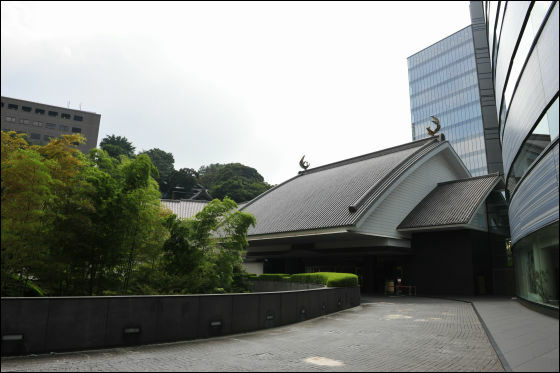
Welcome to Wolverine at the aisle.

There is a magical air in the building, just a space called "Showa no Ryugu castle".
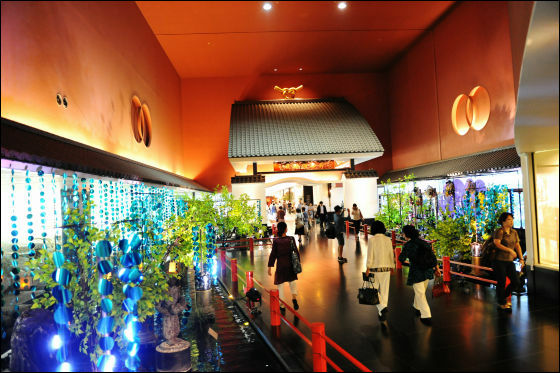
The staff in the waiting room concerned also had such an atmosphere.
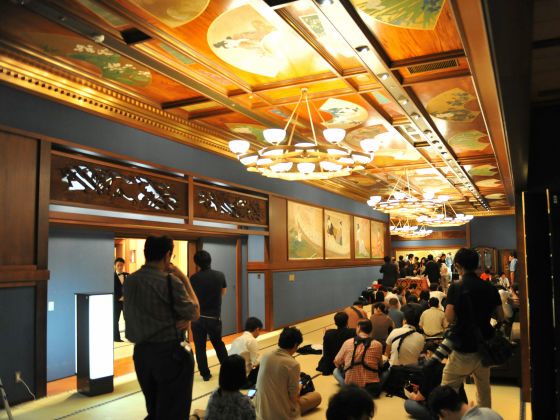
Such a stage was prepared for the interview site. This is indoors.
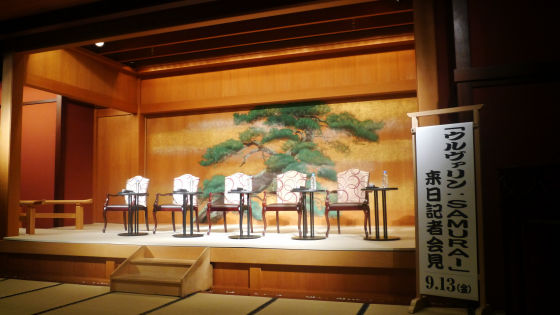
A reporter waiting for the start. I seemed to be waiting for the Noh stage to start, crowding on Tatami.

In the stage sleeve, Kuroko is on standby.
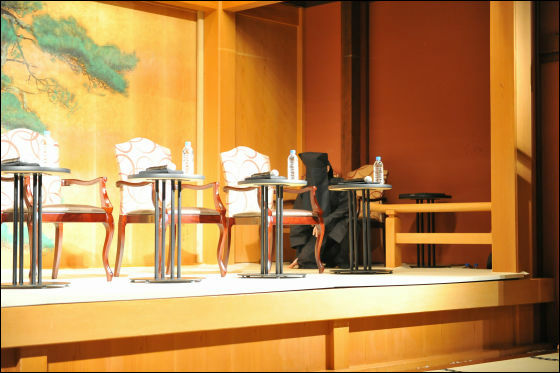
The press conference began. From the left, Fukushima Rira, Hiroyuki Sanada, Hugh · Jackman of the protagonists, James Goldman coach, TAO five people are in a row.
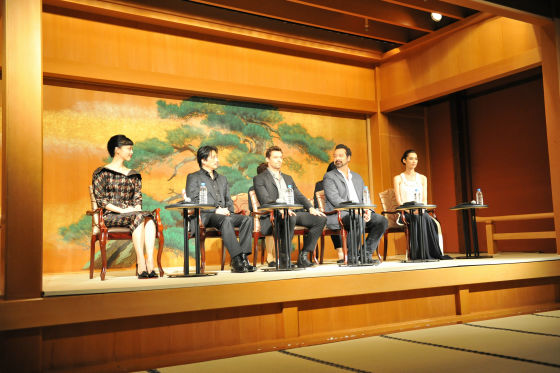
Shooting in standing posture.
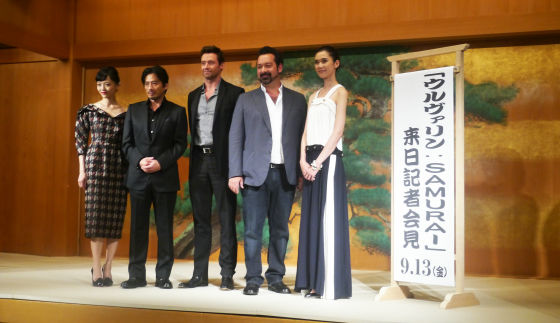
Just before the end of the interview, Hugh · Jackman asked "Might be a bit of a word" and asked for a microphone.
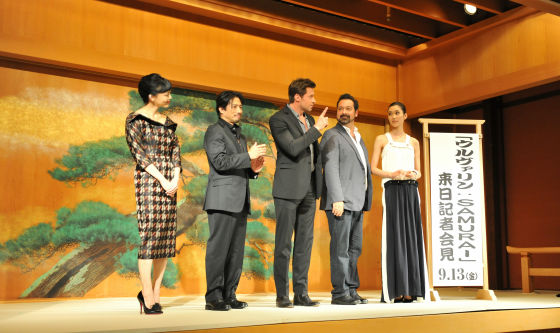
"We've been doing various press conferences, but the first time that the media press is participating in socks!" When you skipped the joke, they were all surrounded by a burst of laughter.
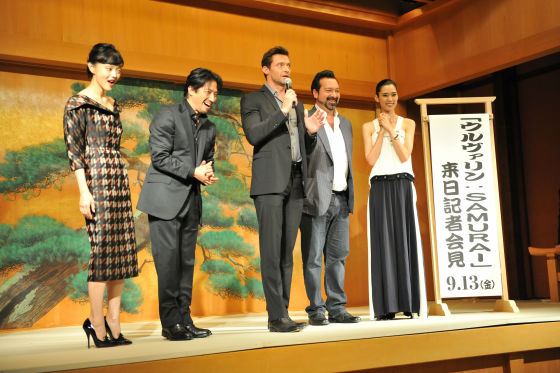
Here is the trailer of the work
"Wolverine: SAMURAI" trailer - YouTube
Here is a trailer featuring the fighting (fresh) scene with "Singen" which Hiroyuki Sanada plays
"Wolverine: SAMURAI" Suicide scene - YouTube
A scene in which Wolverine and the villain battle in town, taken in the streets of Tokyo.
"Wolverine: SAMURAI" Street action scene - YouTube
A trailer holding a sweat in the hand that captured a powerful action scene on the Shinkansen and the dirty train
"Wolverine: SAMURAI" train scene - YouTube
Starring Hugh Jackman, directed by James Mangold, "Wolverine: SAMURAI" will be released nationwide from September 13 (Friday).
◆ "Wolverine: SAMURAI"
September 13 (Fri) TOHO CINEMAS Daily Theater and other nationwide road show
3D / 2D subtitle version / Japanese dubbed version (except some areas) simultaneous release
Official site:http://wolverine-samurai.jp
Facebook:https://www.facebook.com/WolverineJP
Twitter: @Wolverine_JPN
Distribution: 20th century Fox movies
© 2013 Twentieth Century Fox Film Corporation All Rights Reserved
Related Posts:

